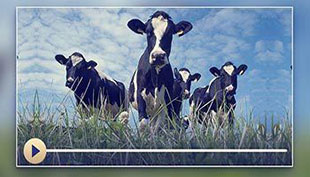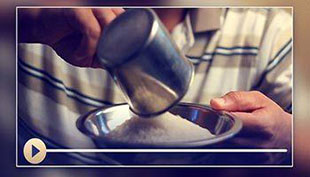Anything that is produced from the earth which can be of use / consumed.
Zakat on products from the earth
Definition of produce from earth
Produce from the earth is of two kinds: Grains and fruits, on the one hand, and minerals and treasures on the other.
Firstly: Grains and Fruits
Definition of grains and fruits
Any grains that can be stored, e.g. barely wheat and so on.
Any fruit that can be stored e.g. dates, raisins and almonds.
The Ruling on Zakat of Grains and Fruits
Zakah on grains and fruits is compulsory, because Allah (Almighty) says: “…but pay the due thereof on the day of their harvest.” (Al-an-am: 141); and due to the statement of the Prophet ﷺ: “From that which has been irrigated by the skies (rain) and streams or that which is ‘athariyy[ Athariyy: One which is self-irrigated either through its roots, rain, flood water or streams], one-tenth is paid, and as for that which was irrigated by An-Nadh[ An-Nadh: Irrigation by watering and close monitoring of plant growth], half of one-tenth is paid.” [ Source: Bukhari]
Conditions Necessitating Zakat on Grains and Fruits
1- It should be stored goods
If it is not something which is stored, but used for daily consumption, no Zakah is payable on such. This is because the money value of unstored produce cannot be realized due to the inability of benefitting from such financially.
2- It should be measurable in Wasqs
It should be among the products that are usually weighed in Wasqs. Wasqs are units of measure. This is drawn from the Prophet’s statement ﷺ: “There is no Zakah on grains or dates until such items weigh five Wasqs[ One Wasq: Sixty Sa’].” [ Source: Muslim]
If it is not part of that which is usually weighed (in Wasqs) e.g. vegetables and herbs, then Zakah is not due on it.
3- It should be grown for the purpose of cultivation and production on agriculture farms:
However, Zakat is not due on subsistence farms.
4- It should reach the amount of the Nisab
which is five Wasqs, as evidenced from the Prophet’s statement ﷺ: “There is no Zakah on grains or dates until such items weigh five Wasqs.” [ Source: Muslim] The Nisab in this case is three hundred Prophetic Sa’, which is equivalent to 612kg of good quality wheat. One has to mix variants of the same fruit for the same year in order to see if they add up to the Nisab. For example, sugary dates are mixed with barhi types because they are variants of the same fruit. A different grain/fruit, however, is not mixed with another when calculating the Nisab. Wheat, for instance, is not mixed with barley, nor is barley with dates (and so on).
The Period in which Zakat of Grains and Fruits is Due
It is compulsory to pay Zakat on grains when they have hardened and on fruits when they have ripened and therefore deemed consumable. Whoever sells fruits or grains after the period in which the Zakah was due, is still liable for the payment, as he was in possession of them at the time they were due.
Spoilage of grains and fruits
If it happens that grains and fruits become spoilt i.e. with neither deliberate spoilage nor negligence, then Zakah is not due on them. If the farmer, however, intentionally damagesMeasure of Compulsory Zakah Payable on Grains and Fruits
1- It is compulsory to pay one-tenth or 10% from that which was irrigated with no inconvenience or stress (i.e. having to look for water), e.g. that which was irrigated by rains and streams.
2- It is compulsory to pay half of one-tenth or 5% from that which was irrigated through some degree of stress and hardship, e.g. that which was irrigated with water from wells.
3- It is compulsory to pay three-fourths of one-tenth or 7.5% from that which was irrigated in the two manners together, e.g. that which was irrigated sometimes with rain water and at other times with well water. Evidence for this is the Prophet’s statement ﷺ: “From that which was irrigated by water from the sky, rivers and streams, one-tenth is paid. As for that irrigated by As-Saniyah[ As-Saniyah: A camel that is used to draw water from the well (to irrigate crops)], half of one-tenth is payable.” [ Source: Muslim]
Zakah on honey
Ibn Abdul Barr (may Allah have mercy on his soul) narrated that the majority of the scholars are of the opinion that no Zakah is levied on honey, which is more correct; since there is no sound evidence in the books (i.e. the Qur’an, nor in the Sunnah) that state that it is obligatory to pay Zakah on it. Therefore the original status remains until evidence making it obligatory is found.Secondly: Minerals and Treasures
Definition of minerals and treasures
That which is extracted from the earth, but not having the semblance of the earth, e.g. gold, silver, iron, gems, lead and other crude substances extracted from the earth.
A property buried under the earth’s surface by man, whether it is gold, silver or the like.
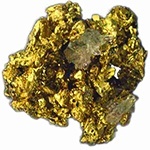 Crude gold
Crude gold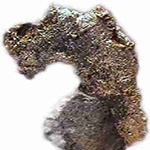 Crude silver
Crude silver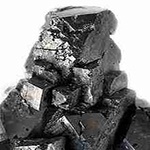 Crude lead
Crude lead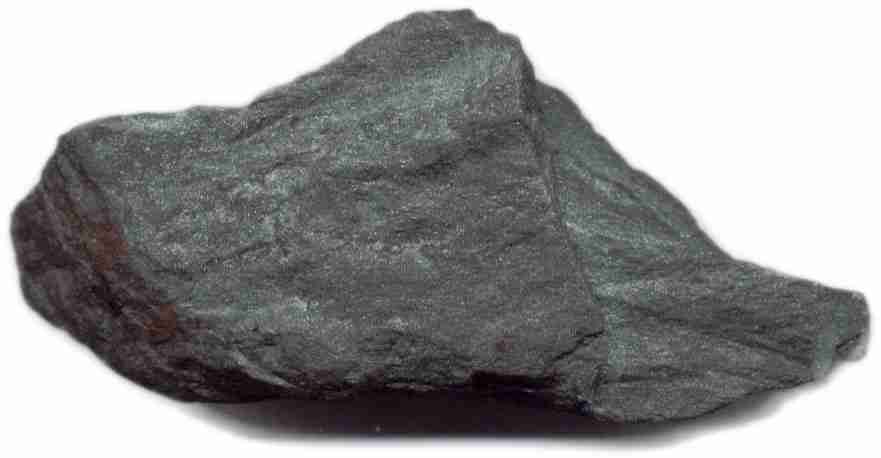 Crude Iron
Crude IronRuling on Zakah on Minerals and Treasures
It is obligatory; Allah said: “O you who believe! spend of the good things you have (legally) earned and of that which we have produced from the earth for you” (Al –Baqarah: 267) and the Prophet ﷺ also said: “Of rikaz (anything hidden in the ground), one-fifth is payable.” [ Agreed Upon]
Conditions for Zakah on Minerals and Treasures
There are no conditions for Zakah on rikaz (anything hidden in the ground).
Whenever a man comes in possession of it, he pays the Zakah immediately.
Measure of Compulsory Zakah on Minerals and Treasures
It is compulsory to pay one-fifth of it- whether it is plenty or small, due to the generality of the Prophet’s statement ﷺ: “Of rikaz (anything hidden in the ground), one-fifth is payable.” [ Agreed Upon]






 Zakat on gold and si...
Zakat on gold and si...
 Rules of zakat in Is...
Rules of zakat in Is...



